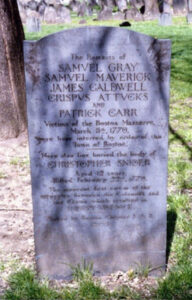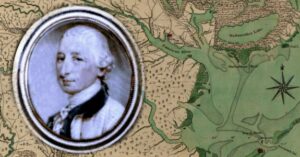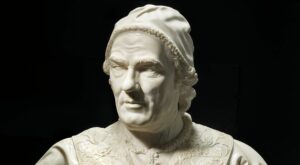Americanism Redux
July 20, your today, on the journey to the American Founding, 250 years ago, in 1773
The change I see in front of me is the change I…
…embrace…or fear…or expect…or dread…or need to prepare for…or have no way of preparing for.
And on it goes for me, my family, my circle of loved ones and friends, my community, my nation—or empire—today, 250 years ago. The change I see…
********************************************************************
She sees eight bright faces in front of her. Love shows on her face. Her eight children—the youngest a baby and the eldest an eight-year old—are her world, no question about it. Of course, she has more than one world. She is a galaxy of life.
She worries about what to teach them, how they should be educated, the lessons and learning they’ll need to make their lives in a world where tensions are everywhere. Will the things they learn be enough in their lives to come? A question that takes your sleep away. To help, she’s found a mentor, someone who clearly knows much about raising children, sustaining a family and home, and, no doubt about it, being part of worlds bigger than yourself. Her mentor knows the galaxy.
Today, 250 years ago, Abigail Adams sits with her eight children and thumbs through the pages of “On The Management And Education Of Children”, a book by Juliana Seymour. Abigail’s mentor, Mercy Otis Warren, has recommended it as essential to a busy young mother seeking to guide and grow her children.
(Abigail Adams)
Abigail’s letter of gratitude for the mentoring is at the home of Mrs. Mercy Otis Warren, today, 250 years ago. Pulled from a leather pouch and handed to Mrs. Warren at her door, Abigail’s letter sits on Mercy’s desk, opened and read and then set aside. Mercy has other things on her mind. She scans one of Boston’s newspapers to check on the public distribution of the third and final play in a stage-drama trilogy she’s written. Ah, there it is. Called “The Defeat”, today’s edition of the Boston Gazette features Mercy’s latest play. The play has two characters modeled after British Royal Governor Thomas Hutchinson (Rapatio) and Lieutenant Governor Andrew Oliver (Limpet). The two characters are corrupt, conniving, and dedicated to the ruination of the local people they govern, or more precisely, rule, or more precisely yet, rule tyrannically, in the opinion of Mercy and her readers. The play’s final lines are from the Oliver character:
“A lifeless effigy won’t long suffice,
But you and I as forfeiture must pay,
Our hoary heads to this much injured state.”
(Mercy Otis Warren)
Abigail Adams’s husband, John, is mulling the possibility of having his own dramatic work published in a Boston newspaper. It’s not a play but a letter—truthfully, a false letter—written by the ghost of Crispus Attucks, a free black man killed in the so-called Boston Massacre three years ago. Adams has written this letter in the style of language he thinks would fit with Attucks in real life. In the false and dramatized letter, Adams-as-Attucks warns Thomas Hutchinson “you will hear further from Us hereafter.” The letter is Adams’s try at dramatic imagery, though he’s unsure if he’ll follow through with the actual publishing for public readership.
(the shared grave of Crispus Attucks)
Published or not, it’s clear as spring water that Hutchinson is at the stormy center of the imperial/colonial clash. The play’s script by Mercy Warren shows it. The fake letter by John Adams shows it. The dark urgency behind Abigail’s desire to educate her children shows it.
Two young graduating students of Harvard College, Eliphalet Pearson and Theodore Parsons, have reached an end to part of their education. Tomorrow is their big day, “disputation day”, where they must present a case study of debate, rhetoric, and reasoning; it’s a Harvard graduation requirement. Their case study will have an electrifying theme—Pearson and Parsons, the Double Ps, have chosen “whether the enslavement of Africans is compatible with natural law.” The Double Ps will state clearly, firmly, and, they hope, persuasively that the answer is “No.” They’ve been hard at it with long hours of research, analysis, and speech-writing. They’ve practiced on one another, blending spoken words with unspoken gestures. They’re confident their chosen topic will capitalize on the rumblings against enslavement that have emerged in New England.
(Harvard Hall, six years old when the Double Ps presented their case study)
Rather than building on rumblings North Carolina’s British Royal Governor Josiah Martin spends every ounce of his energy trying to tamp them down. He is fending off the colony’s legislature and its gnawing away of imperial power. He’s been vetoing bill after bill for the past six months. With every rejection, he deepens the anger of more legislators toward him. Still, ever optimistic, he’s hoping that his main opponents in the legislature will realize he’s only protecting imperial power because it is the right thing to do. He thinks they’ll understand, soon and somehow, that “it is in their interest to attend to the Royal instructions.” At some point in this struggle the tide will turn back, as all tides must, as all tides do.
(Josiah Martin)
Also
The Atlantic Ocean proves the point of constant change, of back and forth, east and west, coming and going, tide in and tide out.
Heading east in ships bound from the British colonies to the British homeland are containers filled with gold. Not every ship but many ships have, for the past six months or more, carried gold drawn out of the colonial economy at the demand of creditors and investors in England. A credit panic has been underway in northern Europe and the victims are any colonial business person in the American colonies who owes money east across the Atlantic, and hundreds do owe. Unsettled creditors want their money back—now—in precious metals for whatever amount they can get. Face east and wave goodbye as the gold and silver fades below the horizon, bound for England.
(eastbound-a British guinea)
Heading west today from the British Isles in the ship Hector are 189 Scottish emigrants. They are the largest contingent yet from Scotland bound for a specific place in the British colonies. Their destination is Pictou, Nova Scotia. They’re eager to transplant their culture, eager to display their adherence to the British crown and empire in a new land with more opportunity. They are highly motivated, and it’s no accident that in the first set of the Encyclopedia Britannica, now available for the past three years, the entry for “Nova Scotia” directs the reader to the entry for “Scotland.” They seek a familiar life in a freshened place.
(Hector in for modern repairs)
Pope Clement XIV erases all doubt as to his decision first contemplated months ago. It’s done—the Society of Jesus, the Jesuits, are officially banned everywhere on Earth. The governments of Spain, Portugal, and France had demanded it and today it is so decreed. In the papal sense, it is “res judicata”: it has been decided.
(Clement XIV)
For You Now
So how do you feel about change?
We’re seeing multiple forms in our entry for today. The entire thing brims with them. Some are definite. Some are vague. Some are immediate. Some seem far-off. Some come right at you. Some require you to help another person or other people.
From our vantage point of hindsight, they all share the point of obviousness. Of course it was going to happen. Who could have thought otherwise?
But in the moment of today, 250 years ago, scarcely anyone thinks, let alone knows, of the changes that will certainly happen. Nothing seems inevitable, nothing seems decreed. Res judicata, anyone?
Hardly.
Abigail worries that the wrong education could doom her children in a world of change.
Mercy calls people to seize change and make a reality that hasn’t occurred before.
Abigail’s John wants to invoke a clear image to highlight a clear point but pulls back at the last, unsure of the form of change.
The Double Ps push a new target onto the path of change, hoping an accepted force will exert crushing power.
Josiah convinces himself that change will respect the resilience of constancy.
The answer to hindsight isn’t foresight. It’s nowsight which, if you’re able, may be enriched with insight—and THAT is what gets you to foresight.
Suggestion
Take a moment and consider—what, as of now, in your corner of the American nation, is the change that draws and holds your attention, and what insight do you think you see?
(Change in the Bend–photo is by Jenny Lake)
















